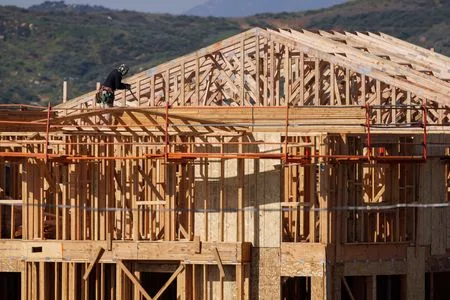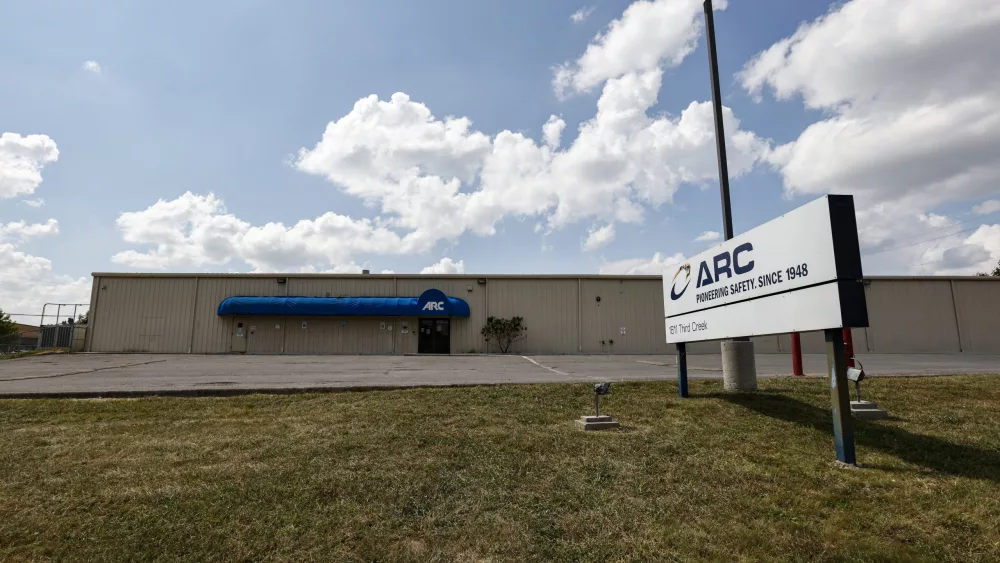WASHINGTON (Reuters) – U.S. single-family homebuilding rebounded in November as the drag from hurricanes faded, but the threat of tariffs on imported goods and potential labor shortages from mass deportations could hamper new construction next year.
Single-family housing starts, which account for the bulk of homebuilding, jumped 6.4% to a seasonally adjusted annual rate of 1.011 million units last month, the Commerce Department’s Census Bureau said on Wednesday. Data for October was revised to show homebuilding declining to a rate of 950,000 units from the previously reported pace of 970,000 units.
Homebuilding has struggled for much of this year after benefiting from a severe shortage of previously owned homes for sale. Though the Federal Reserve started cutting interest rates in September, the popular 30-year fixed-rate mortgage remains near 7%, tracking the 10-year U.S. Treasury yields, which have risen on the economy’s resilience and worries that some of President-elect Donald Trump’s policies were inflationary.
The U.S. central bank is expected to deliver a third rate cut on Wednesday, but project fewer reductions in borrowing costs than the four it had forecast in September.
A National Association of Home Builders survey on Tuesday showed a measure of sales expectations in the next six months surging in December to the highest level since April 2022. Homebuilder sentiment was steady at seven-month highs amid hopes for fewer regulations from the Republican administration.
But economists were less enthusiastic, warning of even higher lumber prices and severe worker shortages if Trump followed through with tariffs and expulsions of undocumented immigrants, which would undermine the housing market.
The United States imports large quantities of lumber from Canada. Trump has said he would impose a 25% tariff on all imports from Canada and Mexico.
“We don’t think any regulatory relief for homebuilders would happen immediately,” said Nancy Vanden Houten, U.S. lead economist at Oxford Economics. “Many of the regulations on residential building are imposed at the state and local level. Foreign-born workers who are not citizens comprise about 18% of the construction work force.”
Permits for future construction of single-family housing rose 0.1% to a rate of 972,000 units in November.
(Reporting by Lucia Mutikani; Editing by Chizu Nomiyama)
Brought to you by www.srnnews.com






